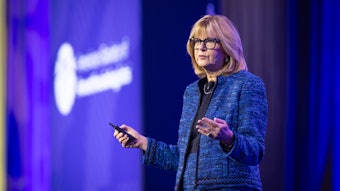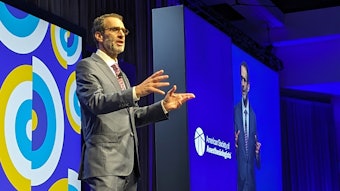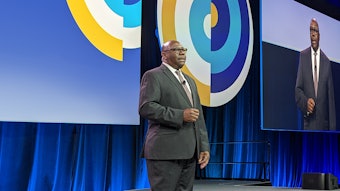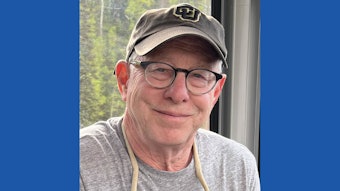Reaching out to the horizon of medicine
AI might just be the anesthesiologist’s ‘whisper in the ear.’
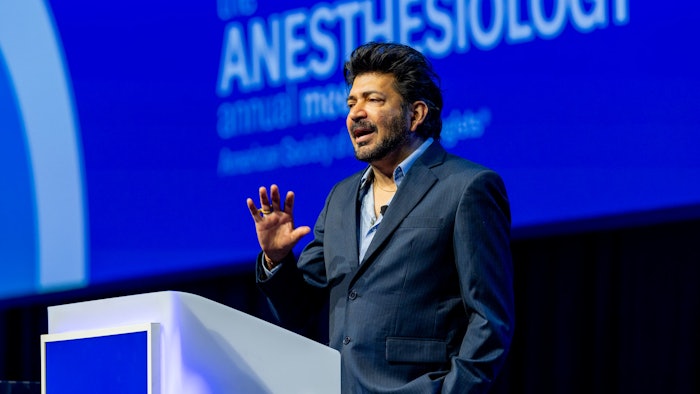
Oncologist, cancer researcher, and Pulitzer Prize-winning science writer Siddhartha Mukherjee, MD, DPhil, explored the future of medicine along three fronts during 2024’s Opening Session keynote, “Three Horizons in the Future of Medicine.” He described opportunities for AI to power up diagnostics, fuel personalized therapies, and beat cancer at its own game.
Presenting his vision of this next frontier, he told the audience, “Your task is to figure out how those particularities will change your practice, your life, and the life of your patients.”
Dr. Mukherjee first tackled the value of AI’s deep learning in the medical field and how deploying learning algorithms that imitate human learning can deliver positive and unimagined results to the field of medicine.
“The fear is not AI taking over our jobs, but someone who knows AI very well taking over our jobs,” he said.
Dr. Mukherjee gave the example of a friend who recently succumbed to skin cancer. After his passing, he went through family and Facebook pictures, gathering a host of them to develop a learning set to see if they could determine what was missed.
He said four years before his friend’s death, they saw in pictures a small mole on the side of his face, the first sign of the melanoma.
All of which became the inkling concept of how to develop a learning set. “Could we have sent this picture and had it evaluated to determine if it was malignant or benign?" he asked.
This is not to replace the diagnosing dermatologist, he said. “We are putting a whisper in the ear of the dermatologist. Give them reason to reevaluate. The AI algorithm can gather high-quality data and put info into the learning set.”
With just 100 or 200 samples, Dr. Mukherjee said AI was performing better than a pathologist. The value of AI is that it can take in lots of information, build on the learning sets, and quickly spit out valuable, accurate information. However, he emphasized the need for high-quality and highly curated data.
Dr. Mukherjee moved to a more complex use of AI in image and pattern recognition. He used the example of drug reconciliation after a hospital stay. Patients may be taking a host of drugs before surgery and then receive added drugs following their hospital stay. Often the interactions aren’t fully understood until after the patient has been home for about a week, which can be dangerous.
“It (AI) will recognize the drug immediately and recognize the dose,” he said. AI can now recognize all of the drugs, ask for the patient symptoms, and immediately understand if there is something that should be flagged.
A third example he referred to was “A Relentless Pursuit,” which could be employed to resolve insurance disputes in a more immediate way. A typical dispute could take 10 days or longer to identify. Using AI, the bill could be moved in 20 seconds.
He closed with the potential of using AI to take on cancer. He described his “Cancer in a Dish” project, in which he tested thousands of drugs against 12 to 16 parameters for treating a type of cancer with chemotherapy and taught the engine to predict response. Using an example case of colorectal cancer, he ran the test and found that most of the typically prescribed chemo drugs do not work. AI pointed to other sets of drugs.
“Cancer cells have the capacity to become resistant to certain molecules,” he said. “What if you could trick the immune systems to not recognize them?”
Dr. Mukherjee said he is working on an affordable solution to weaponize immune therapies to take on cancer cells. “They attack the cancer and enable the monocytes to kill the cancer cells.” He showed visible photos of monocytes eating cancer cells.
“There are vast applications across medicine, including anesthesiology, surgery, and pain management, and the creation of new drugs. We must continue to learn to learn.”
